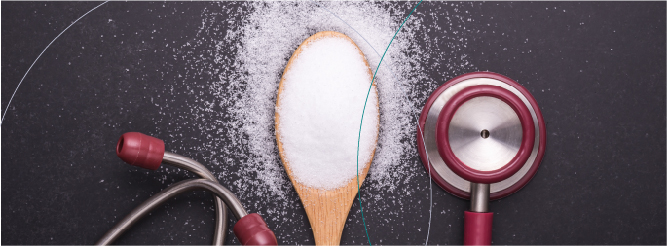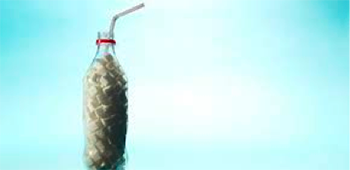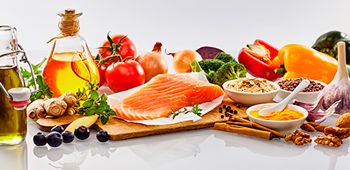
A healthy, well-balanced diet is something that everyone should have access to in order to lead the best lifestyle possible. Whole foods, such as fruit and vegetables, lean protein, grains, and legumes are ideal components for a person’s day-to-day meals; not only do they help maintain a healthy weight, but following a clean diet can reduce the risk of developing certain illnesses or conditions that can be damaging to a person’s well-being.
However, following a clean diet and sticking to whole foods is not as easy as one may think. There are several factors that contribute to people not having access to healthy meals, such as time constraints, food shortages, and a lack of nutritional education. This can push people to consume pre cooked foods because they’re easy and quick to make and while they can be of help when you’re running low on time, they can also be hazardous to your health if you eat them regularly.
We’re not suggesting that you avoid these foods completely, but to keep in mind that they’re highly processed and contain large quantities of salt. Almost everything we eat contains a natural amount of salt and it’s good for adding some extra flavor to your food, but consuming more than is recommended can be bad for our health, especially as we grow older. At LIMARP®, your health is very important to us and that includes providing you with the necessary information so that you can lead the best lifestyle possible.
For this article, we’d like to discuss how excess salt in your diet can affect your health and which foods you should avoid if you’re looking to reduce its intake. As always, we recommend that you speak to your doctor or nutritionist before making any big changes to your diet.
According to the U.S. Food and Administration (FDA), the recommended daily intake of sodium, which can be found in all salty foods, is 2,300 mg or one tablespoon[1]. However, most of us exceed that number by almost double and that is due to the amount of salt that processed foods or food at restaurants contain.
Salty foods can be very delicious, but they can have serious short and long-term consequences on our health. Short-term consequences include water retention, intense thirst, spikes in blood pressure[2].
On the other hand, long-term effects of excessively eating salty foods include an increase in stomach cancer risk[3], heart disease, hypertension[4], and a premature death due to complications brought by the aforementioned conditions.
While avoiding salt in its totality is practically impossible, there are steps you can follow to reduce the amount of sodium you consume. These steps vary from cutting back on processed foods to replacing certain foods with others that are less salty.
First, we’d like to go over some of the most common salty foods so you know what to avoid as much as you can. Keep in mind that eating any of these foods sporadically is not bad unless your doctor indicated the opposite.
Deli meat
In order to maintain their consistency or flavor, deli meat can be packed with salt. Ham and sausages are some of the most consumed meats in a person’s daily diet with approximately 1,117 mg of sodium in a serving[5]. It’s best if you avoid eating large portions of deli meat and instead replace them with fish or fresh meats.
Vegetable juice
This is a salty drink that may be a quick vegetable fix, but it actually contains way more salt. What we recommend is that you check the food labels in order to avoid those that have excess sodium and lean toward those with less salt.
Frozen foods
As we’ve mentioned before, pre cooked foods can be incredibly salty and it’s best to avoid them, if possible. Some of these salty foods include frozen pizza, tacos, vegetables, and corndogs, among others.
Bread and tortillas
These foods alone are also very salty and once you add the extra ingredientes, you can have in your hands a dish with very high sodium. We recommend you check the labels and avoid the options that contain the most salt per serving.
These are just some examples of salty food and in order to recognize more, it’s very important to learn how to read food labels, as well as cooking your own dishes from scratch in order to avoid the overconsumption of salt. When it comes to cooking, you can replace salt with pepper as your main seasoning or use other ingredients to give flavor to your food.
Contact Us to Learn More
If you want to reduce salty foods from your diet and need guidance, schedule an appointment with one of our doctors. We can help determine the right treatment for you. Contact us online anytime or give us a call at (619) 373-0229.
References
- [1] “Sodium in Your Diet”. https://www.fda.gov/food/nutrition-education-resources-materials/sodium-your-diet. (Accessed August 27, 2022).
- [2] Grillo A, Salvi L, Coruzzi P, Salvi P, Parati G. Sodium Intake and Hypertension. Nutrients. 2019 Aug 21;11(9):1970. doi: 10.3390/nu11091970. PMID: 31438636; PMCID: PMC6770596.
- [3] D’Elia L, Galletti F, Strazzullo P. Dietary salt intake and risk of gastric cancer. Cancer Treat Res. 2014;159:83-95. doi: 10.1007/978-3-642-38007-5_6. PMID: 24114476.
- [4] Kantaria N, Pantsulaia I, Andronikashvili I, Simonia G. POSSIBLE MECHANISM OF DEVELOPMENT OF SALT SENSITIVE ESSENTIAL HYPERTENSION. Georgian Med News. 2016 Sep;(258):28-32. PMID: 27770523.
- [5] Ahuja JK, Pehrsson PR, Haytowitz DB, Wasswa-Kintu S, Nickle M, Showell B, Thomas R, Roseland J, Williams J, Khan M, Nguyen Q, Hoy K, Martin C, Rhodes D, Moshfegh A, Gillespie C, Gunn J, Merritt R, Cogswell M. Sodium monitoring in commercially processed and restaurant foods. Am J Clin Nutr. 2015 Mar;101(3):622-31. doi: 10.3945/ajcn.114.084954. Epub 2015 Jan 28. PMID: 25733648; PMCID: PMC4501259.


